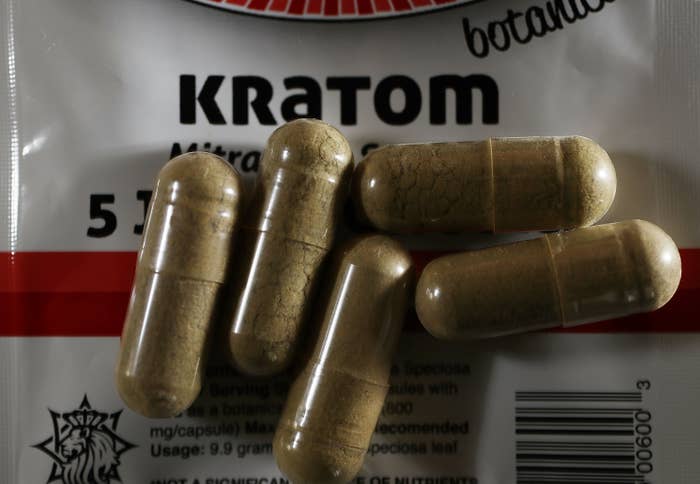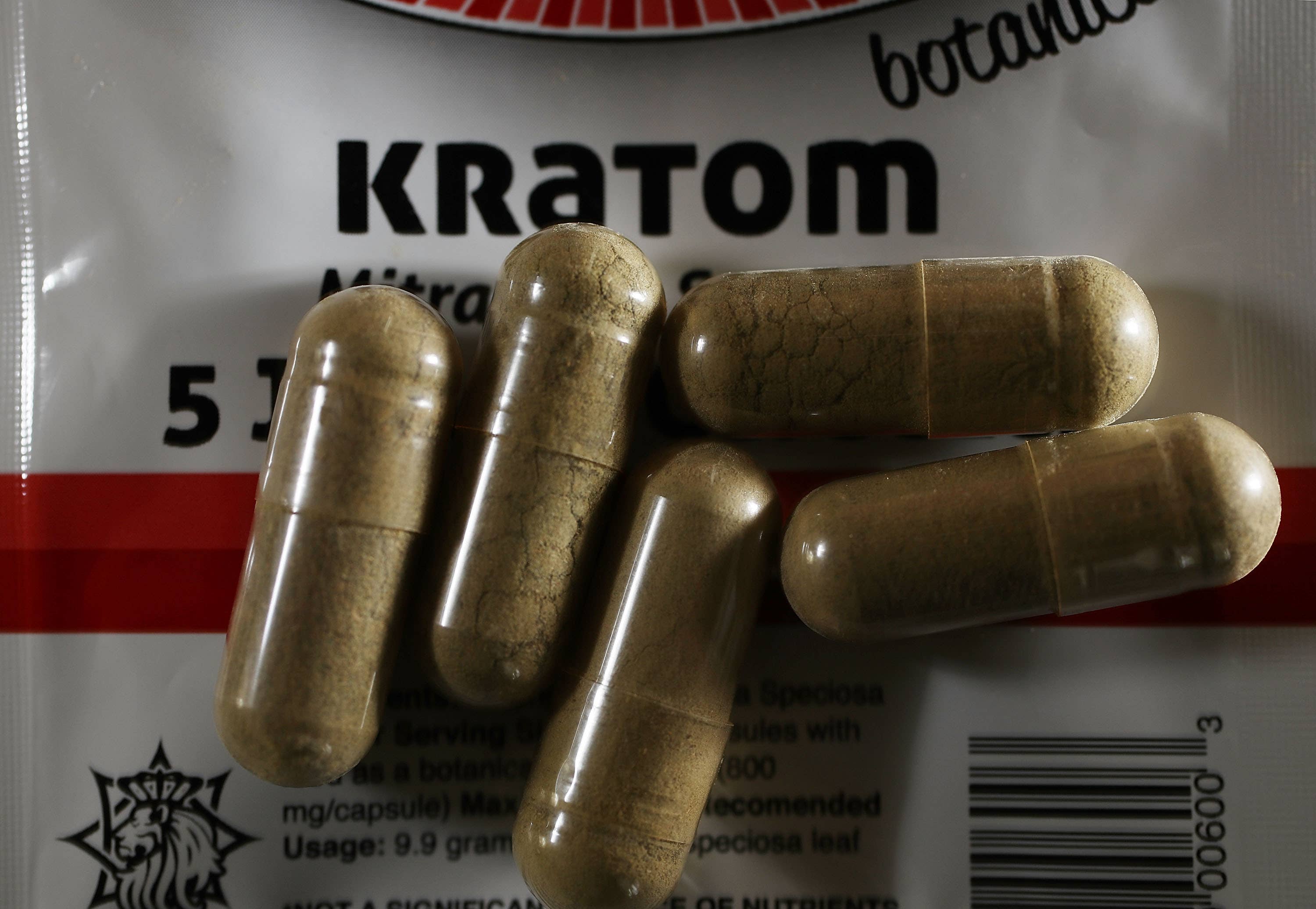
The War on Drugs has long been recognized as an "epic fail," to use Jay Z's words. Just this week, a report by Human Rights Watch and the ACLU condemned the drug war as "devastating" and "disastrous," especially for families and people of color. Luckily, there's now some good news for critics of the drug war: the Drug Enforcement Administration no longer wants to ban kratom, a plant that some researchers think could lessen the damage done by the opioid epidemic.
For some background: Kratom is a plant native to Southeast Asia. Its leaves have been used by laborers and farmers for centuries, but today the leaves are typically ground up into pills or powders, according to CNN. At low doses, kratom can act like a stimulant and make people more alert. At higher doses though, kratom is a sedative that causes pain-dulling, opioid-like effects. The plant's active ingredients, mitragynine and 7-hydroxymitragynine, bind to the body's opioid receptors.
Back in August, the DEA announced plans to temporarily put kratom in schedule 1 of the Controlled Substances Act, the most restrictive category that includes drugs like heroin, Quaaludes, bath salts, and LSD. In its notice of intent, the DEA said a ban on kratom "is necessary to avoid imminent hazard to the public safety."
The decision was quickly met with criticism, for a number of reasons.
A group of nine senators urged the administration to reconsider the ban and said the DEA's "use of this emergency authority for a natural substance is unprecedented," according to the Washington Post. A separate group of 51 U.S. representatives said the DEA's decision "threatens the transparency of the scheduling process and its responsiveness to the input of both citizens and the scientific community."
But it wasn't just lawmakers who criticized the move: users, activists, and scientists also slammed the decision.
Advocates argue kratom can help with a variety of issues—including migraines, Crohn's disease, anxiety, depression, and chronic pain—without having to use more dangerous opiate painkillers, according to U.S. News. In fact, while the DEA worried about kratom possibly being addictive, some users claim kratom helped them overcome opiate and alcohol addictions. Scientists have argued banning kratom would cripple their research, which could eventually lead to a nonaddictive alternative to the more dangerous opiates.
Because of "numerous comments from members of the public challenging the scheduling action," the DEA has now withdrawn its notice of intent, and therefore keeping kratom legal—for now, at least. It's asking for comments from the public, which it'll take into consideration along with "a scientific and medical evaluation and scheduling recommendation" from the Food and Drug Administration.
The Washington Post reported that the DEA will take comments until December 1, 2016, and at that point, it could do a variety of things, such as permanently placing kratom on schedule 1, doing so temporarily, or simply leaving the plant unregulated, as most advocates want.

